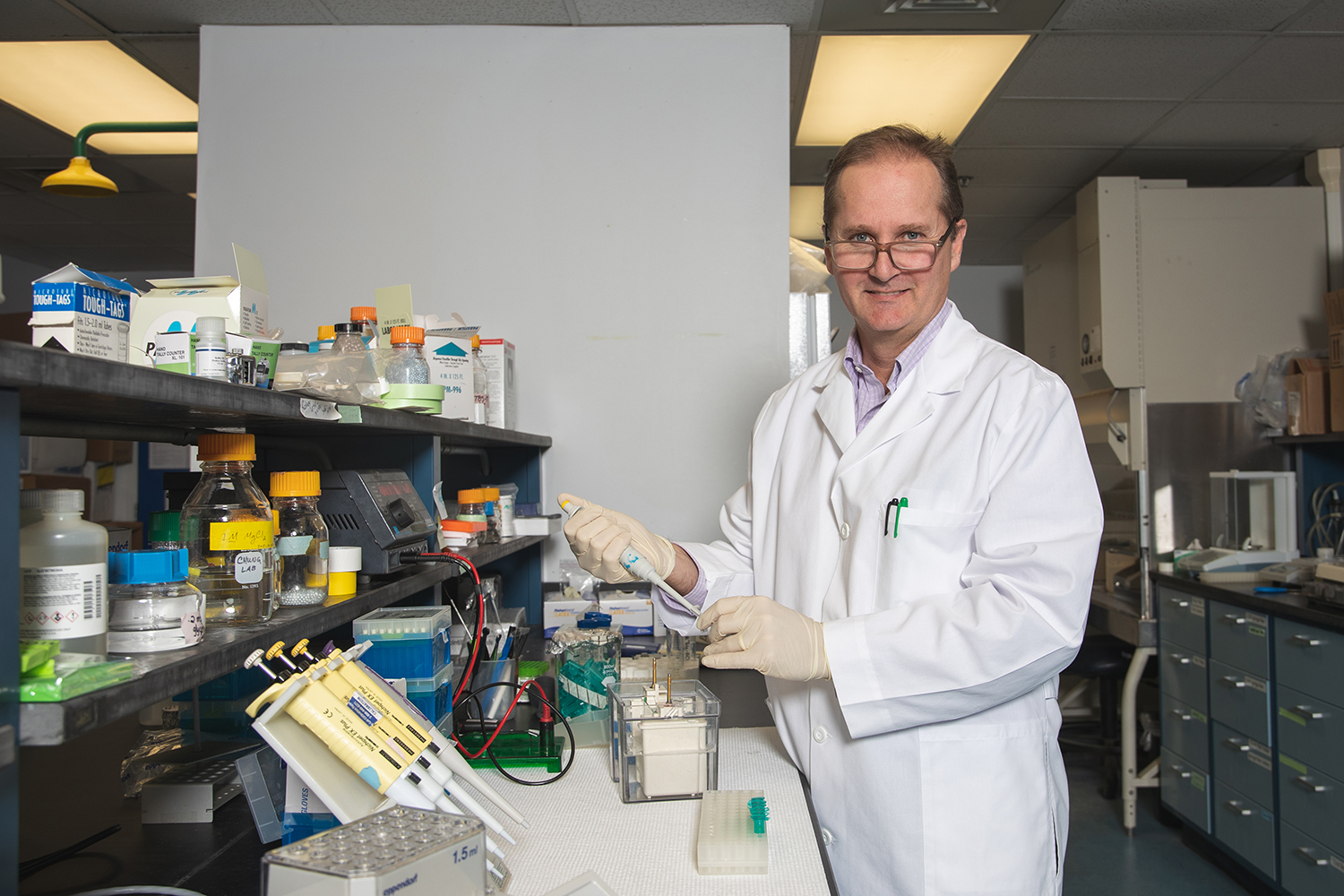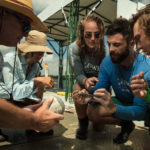UWF students, researchers learn how to bring ideas to marketplace at I-Corps course
University of West Florida professor Rodney Guttmann has been conducting research in an effort to identify biomarkers in cerebrospinal fluid that could detect the presence of Alzheimer’s disease.

After participating in a five-week summer course at the University of Alabama at Birmingham that connects potential customers to faculty, students and other entrepreneurs who have a product, service or prototype, Dr. Guttmann decided to expand his research.
Guttmann said when he talked with caregivers, physicians and doctors regarding his cerebrospinal fluid research, many of them thought he should expand his focus to locating biomarkers in blood samples because testing wouldn’t be as invasive a procedure for patients.
“After participating in the I-Corps course, we will expand our research and look for blood-based biomarkers as that seemed a much more viable option in the future,” said Guttmann, a Department of Biology professor in the Hal Marcus College of Science and Engineering.
The UAB I-Corps Regional Short Course program, sponsored by the National Science Foundation, is designed to help researchers and students determine the commercial viability of their product, develop a business case for possibly securing funding, and increase networking opportunities.
Cody Hill, a senior who is majoring in management information systems at UWF, also attended the course. He has developed a software application that can help detect potential maintenance issues in vehicles. Hill said his product is geared toward customers who manage fleets of vehicles. They can use his application to see issues in their vehicles in real time.
Hill said he talked to 14 potential customers during the course. Those who attended the I-Corps course were able to interview potential customers face-to-face or via phone.
“They give you the tools to go out there and find customers, and they teach you how to talk to customers and map out the entire customer process,” Hill said. “It gives people coming out of the course a very good idea of what the customer landscape looks like and who your competitors are.”
Guttmann said though he will continue his research into trying to find biomarkers for Alzheimer’s disease in cerebrospinal fluid, he is ready to delve into research using blood-based samples as indicated by the feedback he received during the I-Corps course.
“We are excited about our research and hope that one day soon physicians can order a blood test to identify Alzheimer’s disease, which we will be able to analyze here on site,” Guttmann said.
Guttmann encouraged other students and faculty with a product idea to attend the I-Corps course in the future.
“A lesson to be learned from this experience is before you spend a lot of time, energy and money developing a product, go and find out if the product is something someone would want,” Guttmann said. “It takes some time, phone calls and patience, but discerning who would be a target for your product is undeniably worth it.”


